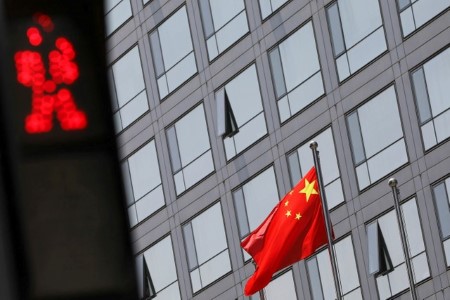




Inflation Update: Weak demand softens shocks
 DOWNLOAD
DOWNLOAD

Monthly Economic Update: Fed cuts incoming
 DOWNLOAD
DOWNLOAD

Consensus Pricing – June 2025
 DOWNLOAD
DOWNLOAD


TOP SEARCHES
Chinese fund managers dig deep into own pockets to launch equity funds

SHANGHAI/SINGAPORE Jan 19 – In the face of intense pressure from authorities to help revive a sickly stock market, Chinese fund management companies are increasingly launching equity funds that are bankrolled mostly by the firm’s own money.
China’s securities regulator has been nudging fund managers to prioritize the launch of equity products as authorities scramble to revive a stock market plumbing five-year lows.
In recent informal guidance, the regulator told some fund managers they needed to launch at least four equity funds before they open any new bond fund, in hopes of propping up the stock market in a way that some analysts think is unlikely to succeed.
Torn between the regulator’s guidance and investors’ apathy towards equities in an ailing economy, mutual fund companies are increasingly setting up so-called “sponsored funds”.
Under Chinese regulation, fund management companies can kick off sponsored funds with just 10 million yuan (USD 1.39 million) of seed money that must remain in the fund for three years.
That compares to the normal requirement for new funds to have at least 200 million yuan, or nearly USD 28 million, of assets and 200 investors before the launch.
“Fund performance is ugly and clients are suffering from losses, so money managers have to take money out of their own pockets,” said hedge fund manager Zhang Kaihua. “What else can they do?”
The number of sponsored equity funds and balanced funds that invest in both stocks and bonds jumped nearly 40% to 122 last year, according to fund consultancy Z-Ben Advisors.
Despite the burst of such funds, China’s blue-chip index has extended its decline in the new year, casting doubts over the effectiveness of the raft of policy measures regulators have announced since the middle of last year.
The impasse in markets has seen Chinese funds perish as rapidly as they are born. A total of 148 equity and balanced funds were forced to liquidate last year because of being too small to be viable, the most in five years.
Fund managers are under pressure to launch equity funds, but “in such a environment, you can hardly raise money,” said a Shanghai-based portfolio manager who is preparing to launch a sponsored fund.
“You have no choice but to invest with your own money first,” said the fund manager, who spoke on condition of anonymity.
The anaemic fund-raising by funds and a sliding stock market feed each other “in a vicious cycle that dents long-term investor confidence,” said Lei Meng, China equity strategist at UBS Securities.
LOWER THRESHOLD
Sponsored funds, which charge the usual management fees, will be wound up after three years if they do not have a required 200 million yuan in assets.
Top managers of sponsored funds include China Asset Management Co, E Fund Management Co, China Southern Asset Management Co and Fullgoal Fund Management, according to Z-Ben Advisors.
Wanjia Asset Management Co this month set up a 10 million yuan fund that invests in pharmaceutical stocks, almost entirely with its own money, a regulatory filing showed.
In December, Galaxy Asset Management set up a new materials equity fund LP68792679 after securing only four subscribers, according to a filing. Galaxy ended up contributing 10 million yuan, or 98.9% of the fund assets.
China Southern Asset Management declined to comment. Wanjia, Galaxy and the other named managers of sponsored funds did not respond immediately to requests for comment.
Bond funds are more popular with investors, but regulators have slowed vetting applications for fixed income products, instead speeding up the approval for equity funds.
“Once you get green light to launch an equity fund, you don’t want to waste it,” said another fund manager who also declined to be identified. “It’s also a condition to launch bond funds.”
Another reason behind the burst of sponsored funds is a hope among money managers that investors disappointed with the performance of existing funds will look for fresh opportunities, and hence a new lease of life for their business.
“Investors have been losing money in existing funds, triggering heavy redemptions and fund liquidation,” said hedge fund manager Zhang. “With new funds, portfolio managers can start afresh.”
(USD 1 = 7.1961 Chinese yuan renminbi)
(Reporting by Samuel Shen in Shanghai and Vidya Ranganathan in Singapore; Additional reporting by Jason Xue; Editing by Jamie Freed)
This article originally appeared on reuters.com





 By Reuters
By Reuters